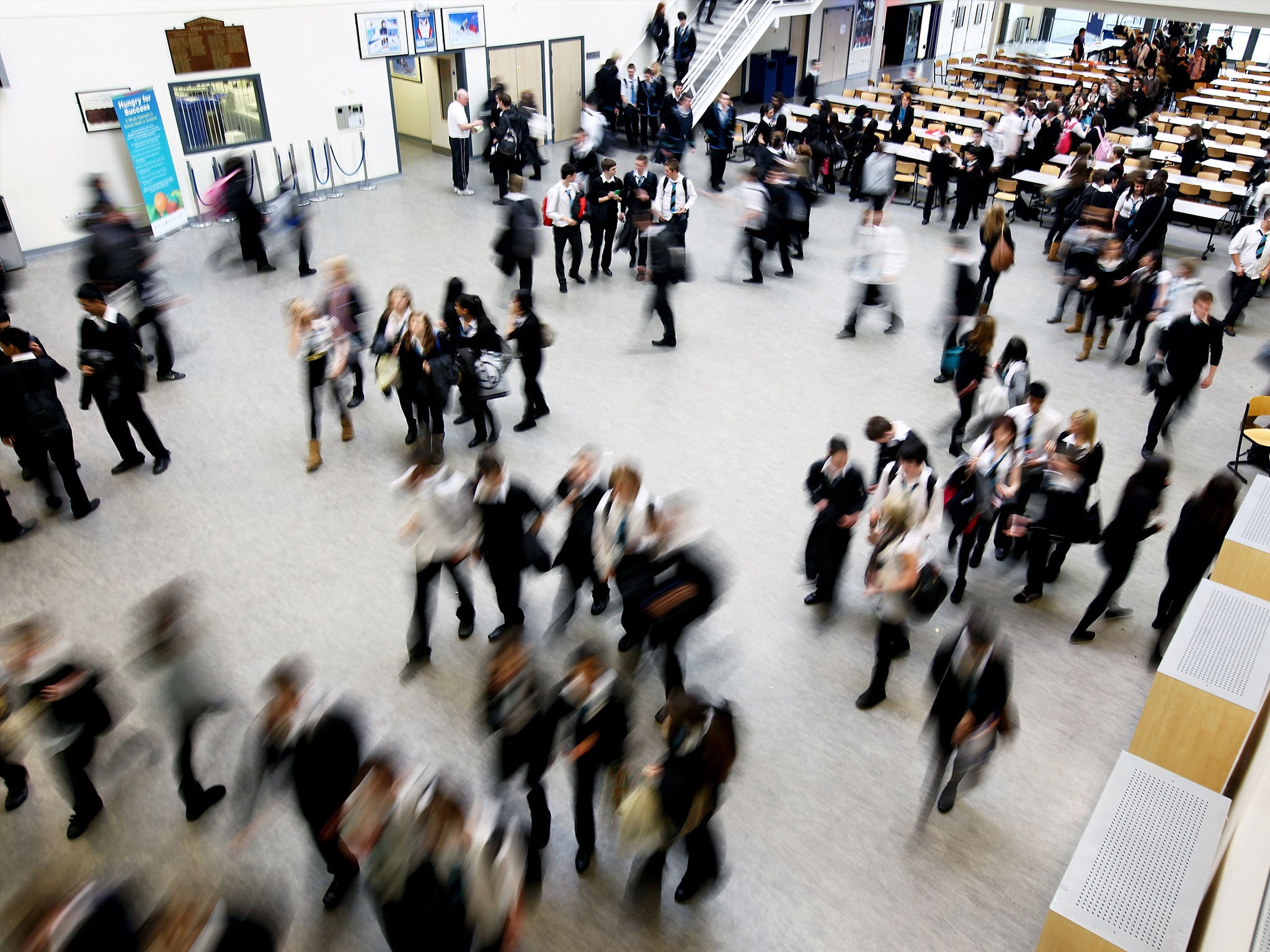Almost 50,000 more secondary school teachers needed in England by 2024 to cope with rising pupil numbers, finds analysis
Figures 'potentially catastrophic' and 'untenable', one teachers' union leader suggests

Your support helps us to tell the story
From reproductive rights to climate change to Big Tech, The Independent is on the ground when the story is developing. Whether it's investigating the financials of Elon Musk's pro-Trump PAC or producing our latest documentary, 'The A Word', which shines a light on the American women fighting for reproductive rights, we know how important it is to parse out the facts from the messaging.
At such a critical moment in US history, we need reporters on the ground. Your donation allows us to keep sending journalists to speak to both sides of the story.
The Independent is trusted by Americans across the entire political spectrum. And unlike many other quality news outlets, we choose not to lock Americans out of our reporting and analysis with paywalls. We believe quality journalism should be available to everyone, paid for by those who can afford it.
Your support makes all the difference.The government needs to find 47,000 more secondary school teachers in England by 2024 to cope with an explosion in pupil numbers, new analysis has suggested.
The number will need to rise by more than a fifth (22.5 per cent) to avoid larger class sizes as the pupil bulge moves up the system, the research by Tes magazine shows.
It comes at a time when recruitment for new trainee teachers is down by almost a quarter.
Official government figures released last month showed that secondary school pupil numbers are set to rise by more than 600,000 over the next few years.
The new analysis, based on government data, said 47,000 more teachers will be needed in the next six years to keep in line with the average secondary pupil-teacher ratio (15.1 pupils per teacher).
The number of secondary school teachers needs to rise from 208,100 in 2016 to 254,822 by 2024, it shows.
The challenge will be even greater in shortage subjects, it suggests. In modern foreign languages (MFL), nearly a quarter (24.2 per cent) of all suitably qualified MFL graduates would have to opt for a career in teaching each year to meet demand.
Mary Bousted, the National Education Union’s joint general secretary, called the figures “potentially catastrophic”.
“It’s just untenable that you’re going to recruit those numbers,” she told Tes, adding that the government had “to make teaching more attractive a profession, and to do that, it has to tackle excessive workload”.
Henry Warren, a former director of learning and innovation at global education company Pearson, suggested that England’s teacher recruitment crisis will lead to computers teaching children and teachers becoming “pastoral carers”.
“I suspect what you are going to end up with is teachers taking a much more emotional role and leaving the content delivery to the computers,” he told Tes. “You can foresee a situation where you have someone who is effectively providing pastoral care. I don’t mean crowd control – I mean proper pastoral care.”
A Department for Education spokesperson said: “There are now a record number of teachers in our schools – 15,500 more than in 2010 – and the number of new teachers entering our classrooms outnumbers those who retire or leave.
“Earlier this month, the education secretary announced a strategy to drive recruitment and boost retention of teachers – working with teaching unions and professional bodies – to continue to attract the brightest and best graduates.
“This will build on existing recruitment measures, which attracted more than 32,000 trainees last year alone.”
Join our commenting forum
Join thought-provoking conversations, follow other Independent readers and see their replies
Comments